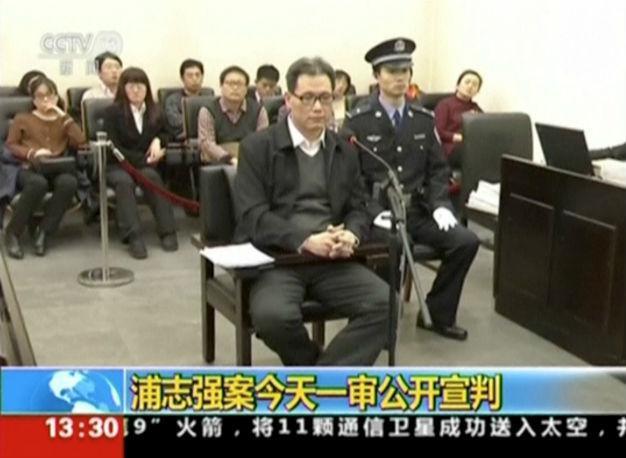Prominent China rights lawyer convicted but avoids jail
BEIJING - Reuters

China's rights lawyer Pu Zhiqiang (L) attends a court session in Beijing in this still image from a December 14, 2015 video. REUTERS photo
A court convicted one of China's most prominent rights lawyers on Dec. 22 of "inciting ethnic hatred" and trouble-making with posts criticising the government, handing down a suspended sentence that means he avoids jail but will not practise law again.
Activists said the three-year suspended sentence for Pu Zhiqiang would serve as a strong reminder to other rights lawyers that the Communist Party, currently engaged in a severe clampdown on dissent, would brook no challenge to its rule.
The Beijing No. 2 Intermediate People's Court said Pu was being punished on the charges of inciting ethnic hatred and "picking quarrels and provoking trouble", state television CCTV said on its microblog.
Pu, 50, was sentenced to three years in prison but given a three-year reprieve, said his lawyer, Shang Baojun.
The suspended sentence means Pu does not have to serve prison time as long as he stays under formal probation during that period, legal experts said.
It means that Pu would be released on Dec. 22, Shang said, although he could be placed under "residential surveillance" - a form of detention in China that is used to keep dissidents in sites away from the public eye.
Pu has represented many well-known dissidents, including artist Ai Weiwei and activists of the "New Citizens' Movement", a group that has called on Chinese leaders to make their wealth public. He was the most prominent activist swept up in what rights groups say is the most severe clampdown on dissent in two decades in China.
Pu had spent nearly 19 months in detention before his trial last week, which lasted just over three hours. His lawyers said he could have faced eight years in prison.
Shang said Pu was relieved and would not appeal against the court ruling.
"He said he thanks everyone and he wants to rest," Shang said, recounting a private conversation Pu had with his lawyers after the verdict.
"He also said if there's an opportunity, history will deliver a true judgment."
The charges against Pu were based on seven microblog posts that he had published online, criticising China's ethnic policy in the troubled western region of Xinjiang and several officials, according to his lawyers.
State news agency Xinhua said the court decided "to impose a lenient punishment" due to "the fact that the defendant Pu Zhiqiang truthfully confessed to the facts of the crime and positively pleaded guilty".
However, Shang said Pu did not plead guilty.
"Having a criminal conviction means he can definitely never practise law again," said lawyer Liang Xiaojun.
On Dec. 22, police and plainclothes security officers prevented foreign reporters, Pu's supporters and diplomats from the United States, the European Union and Switzerland from approaching the courthouse.
